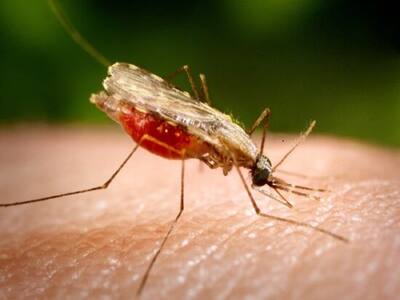Don’t Miss Out on the Latest Updates.
Subscribe to Our Newsletter Today!
Select Language
Mosquito Borne Diseases In India: Community Spread Of Zika, Mumbai Grapples With Malaria, Dengue

Heavy monsoon in Mumbai has led to the sudden rise in vector borne diseases like Malaria, Chikungunya, Dengue and Zika.
Most mosquito species are known to breed and thrive in tropical climatic conditions. The sudden spike in mosquito borne diseases in Indian states at this time of the year is common due to the onset of monsoon. Damp, humid and warm weather conditions favor the breeding of mosquitoes such as Aedes which need just a tiny amount of water to breed and spread. Mumbai is currently experiencing early pre-monsoon rainfall due to which damp, waterlogged areas have become a breeding ground for disease carrying mosquitoes. There has been a sudden surge in the disease caused by mosquitoes in the last 15 days. The total number of malaria cases up until now have reached 189 and the total number of dengue cases have reached 22. Mumbai also reported one case of Chikungunya, a viral infection also caused and transmitted by mosquitoes. Mosquito borne diseases are common in Mumbai during this time of the year, but the state has not witnessed the rise in so many diseases at the same time. Moreover, the city is also coping with the surge in COVID-19 cases.
Meanwhile, a study by National Institute of Virology has found community spread of the Zika virus, another mosquito borne disease, in many Indian states. According to the study, most cases are from Maharashtra, Gujarat and Telangana.
ALL YOU NEED TO KNOW ABOUT DENGUE, MALARIA, CHUKUNGUNYA AND ZIKA
Dengue
Dengue is caused by the dengue virus carried by the aedes mosquito. The main symptoms include sudden fever with a very high temperature, headaches, muscle pain, joint pain, nausea, fatigue, vomiting, skin rash, pain behind the eyes, nose bleeds, gum bleeds and bruising. Dengue can be mild, but it can also be fatal. In some severe cases, patients may develop dengue hemorrhagic fever, damage to lymph and blood vessels, enlargements of liver, bleeding from gums and nose and failure of the circulatory system.
Also Read
Malaria
Malaria is caused by the plasmodium parasite that spreads through mosquitoes. The parasite enters the body and travels to the liver where they multiply. The main symptoms that you should be aware of are headache, fatigue, diarrhea, jaundice, body aches, seizure, kidney failure, bloody stools and convulsion. Malaria can also be fatal if not treated at the right moment.
Chikungunya
Chikungunya virus is also spread by mosquitoes. The symptoms usually show three to seven days after a person is bitten. A person infected by this virus may experience fever, joint pain, headache, nausea, fatigue and rash.
Zika
Zika virus is transmitted by the Aedes mosquito however; experts say that it can also spread through sexual activity. It causes birth defects in infants and pregnant women who are infected with the virus. The main symptoms of Zika are high fever, joint pain, rash, pink eye or conjunctivitis. A person who has been infected before is unlikely to get infected again.


